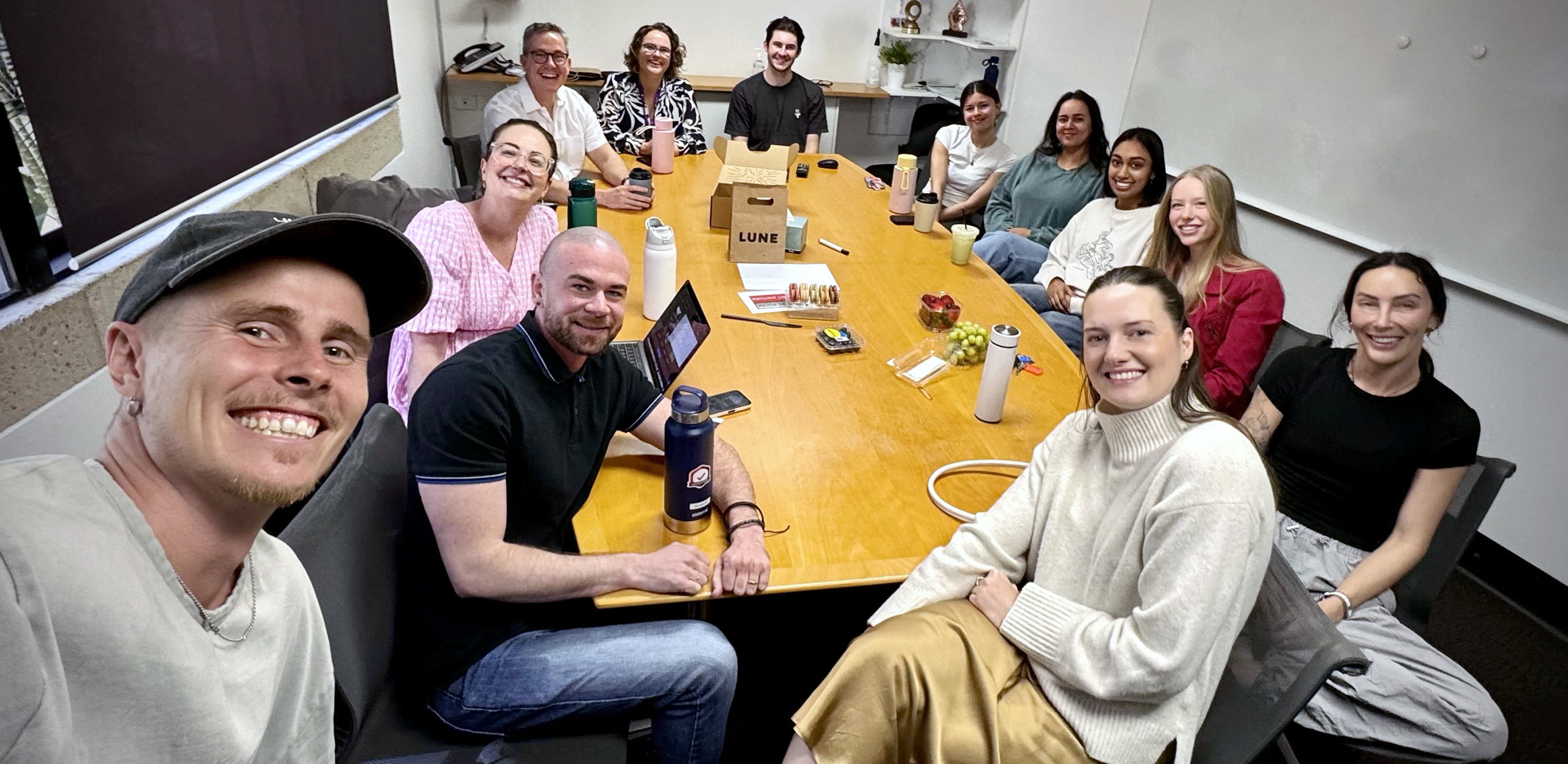
Professor Jason Tangen
I'm a Professor of Cognitive Science at The University of Queensland, originally from Alberta, Canada. I received my BASc in Philosophy and Psychology from The University of Lethbridge, my PhD from McMaster University, and held a postdoctoral fellowship at UNSW before joining UQ in 2006.
Much of our work sits at the intersection of cognitive science and artificial intelligence—exploring how generative AI can enhance learning and cognition. But we're not just focused on AI. We also explore the quirks of human thinking, particularly the biases that shape our judgments in contexts ranging from daily life to high-stakes decision-making.
I've been lucky to work with some truly brilliant students and collaborators over the years. It's a pleasure to come to the lab every day and tackle these fascinating questions together.

Current PhD Students
- Jade Butterworth Predicting and enhancing resilience in forensic, policing, and frontline personnel
- Brynlea Gibson Balancing efficiency with equity: Exploring the impact of AI-driven tutors on learning in higher education
- Lena Hall The illusion of thinking: How sycophantic AI amplifies confirmation bias and undermines reasoning
- Dustin Venini Stateless minds: The situational awareness gap in LLMs
Previous PhD Students
- Ryan Jesson 2024 Reflection refracted: Why rationality is more than just the sum of its thoughts
- Brooklyn Corbett 2024 Reverse engineering expertise in fingerprint identification
- Hilary Grimmer 2023 When "Aha!" Moments are wrong: A new paradigm for experimentally induced false insights
- Samuel Robson 2022 The relationship between visual expertise and learned attention
- Gianni Ribeiro 2020 Communicating error and expertise in forensic expert testimony
- Ruben Laukkonen 2018 The phenomenology of truth: The psychological functions of the insight experience
- Rachel Searston 2016 The emergence of expertise with novel objects
- Wen Wu 2014 Natural categorisation on the basis of style: Non-analytic concept learning of natural scenes
- Matthew Thompson 2013 On expertise in fingerprint identification
Honours Students
- Emilie Tixeront2025Silicon fallacies: Comparing human and AI cognitive biases
- Martin Komitski2025Branded by insight: The power of Aha! moments in brand marketing
- Niraasha Munasinghe2025Confirmation bias in police command decision-making
- Lena Hall2024Can insight dimensions and propensity predict paranormal beliefs and conspiracy mentality?
- Noah Rose2024Does personalised feedback by generative AI improve learning outcomes?
- Rick Hoefnagels2024Decoding the Exponential Growth Bias
- Brynlea Gibson2023Can insight moments increase brand appeal for consumers?
- Zoe Goldthorpe2023Bridging the 2-sigma gap: Exploring the efficacy of generative AI as a personalised tutoring tool
- Nanna Thomsen2023Re-evaluating the cognitive reflection test: Cognitive load impairs test performance
- Lachlan Brown2022The role of fingerprint variation for the development of fingerprint expertise
- Paul Prudon2022Expert bang-for-buck: The influence of different feature information on novice recognition memory accuracy for fingerprints
- Amy Cramb2021Effects of information breadth on trust and pro-environmental behavioural intentions
- Kaitlin Moat2021Is seeing really believing? How media type affects truth judgements
- Team Thesis2020Developing a masterclass on cognitive forensics
- Luke Gao2018Considering the alternative: A training method to improve expertise with fingerprints
- Hilary Grimmer2018Can eliciting feelings of insight influence judgements of fake news
- Naomi Hunt2018The role of feature lists in fingerprint identification
- Kenyon Turner2018Cause and effect: Investigating the efficacy of causal mechanisms for improving fingerprint identification discriminability
- Brooklyn Corbett2017The role of progressive challenge in the development of perceptual expertise
- Daniel Ingledew2017Objective Aha! moments: Measuring insight using a dynamometer
- Kirsty Kent2017Harnessing our hidden wisdom: Making use of crowds in fingerprint identification
- Benjamin Matthews2017Deep structure in visual category learning
- Ryan Metcalfe2017A handful of identities: Examining the nature of identity categorisation in fingerprints
- Yinnam Chan2016How does image resolution affect memory confidence bias and response time judgements of visual category membership?
- Luke French2016Pixels in place of pictures: Exploring the effect of image resolution on discrimination between visual categories
- Samuel Robson2016Faces from different dimensions: The role of distinctiveness in the flashed face distortion effect
- Liuissa Zhen2016Effects of practice testing on learning to discriminate visual categories
- Jessica Marris2015From novice to expert: Investigating the effect of exemplars on learning
- Freya Young2015Domain specificity vs generality: What upside-down fingerprints can tell us
- Jessica Baird2012Investigating the nature of fingerprint expertise
- Charles Driver2012Memory for choices
- Hannah Haysom2012Could Comic Sans make you smarter? An exploration of the effects of disfluency on learning outcomes
- Ruben Laukkonen2012Pupil dilation as a physiological indicator of perceptual expertise
- Rachel Searston2012Guilty by association: An investigation of bias in fingerprint identification
- Elise Jones2011Fingerprint identification: The biasing effect of search strategy
- Jane Sexton2011Proficiency Tests in forensic science: A step towards identifying expertise
- Billy Sung2011When pretty girls turn ugly: The flash face distortion effect
- Cindy Theresiana2011Associative learning under a low level of contingency awareness and its implication in brand image formation
- Alice Towler2011Charts and fingerprints: A match made in court
- Elizabeth Whitehouse2011An investigation into disfluency effects: Depth of learning and affective outcomes
- Sean Murphy2010Recognising faces with low levels of information
- Jacqueline Seah2010The effect of context on brand choice
- Merryn Constable2009Simplifying learning: Bridging the gap between expression and comprehension
- Kathleen Ivison2009The underlying processes involved in fingerprint identification
- Bridie James2009Forming attitudes under a low level of awareness
- Renée Treloar2009Lineup and be counted: The role of memory and presentation mode in the perception and judgement of fingerprints
- Katherine Woodward2009Investigating the cheater and danger frameworks using a change detection task
- Phillip Gee2008The perception of fingerprints: Style over specifics
- Carly Seymour2008The preliminary psychophysics of shoeprint identification
- Wen Wu2008Visual discrimination on the basis of style
- Stephanie Goodhew2007Judgements of style: People, pigeons, and Picasso
- David Miles2007A flexible interpretation of events: The effects of outliers, expectancy and the causal model on human contingency judgements
- Roxana Pearson2007When more causes less: An examination of people's intuitive judgements of negative continuous relationships
- Stephen Rollings2007Similar causes similar effects: How causal judgements are influenced by similarity